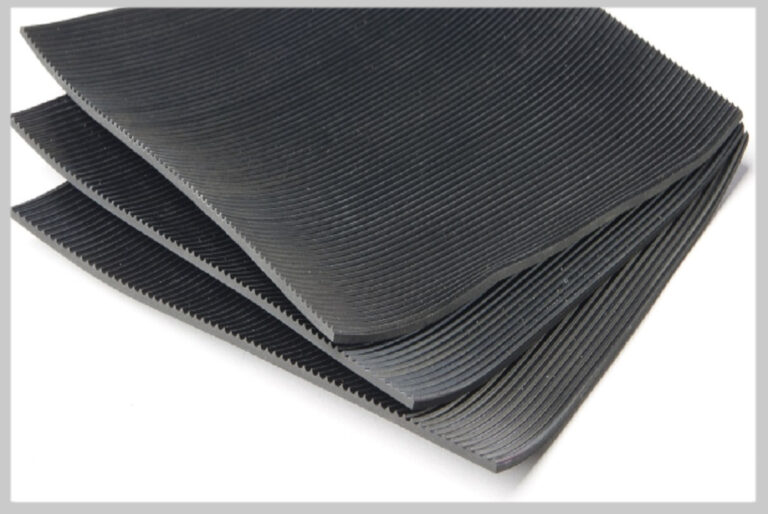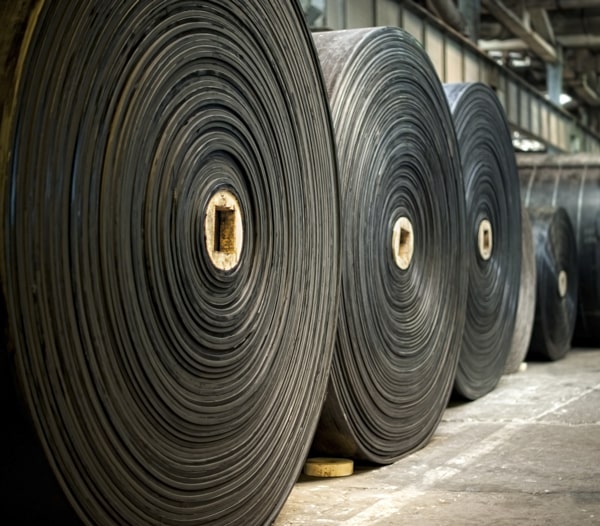Gilsonite In Rubber
Uintaite is a naturally occurring mineral. It is a unique type of asphaltite that contains a high concentration of hydrocarbons, making it an excellent material for a variety of applications. Uintaite or Gilsonite applications in rubber formulations are countless because of this product’s unique properties.

Gilsonite Applications in Rubber Industry
Rubber is commonly used in many different products, ranging from tires to shoes. It is a versatile material that can be molded into many different shapes and sizes. However, rubber alone cannot provide the necessary strength and durability needed for certain products. That is where Gilsonite comes in.
- One of Gilsonite’s applications in rubber is that it can be used as a reinforcing additive to improve the mechanical properties of rubber. This natural ingredient has a high carbon content, making it an excellent material for reinforcement. It also enhances the elasticity, hardness, and thermal stability of rubber.
- Uintaite can also be used as a viscosity modifier in rubber formulations. It helps to reduce the viscosity of the rubber mixture, making it easier to process and mold. Its low ash content and low sulfur content make it an excellent additive for rubber compounds.
- Another application for uintaite in the rubber industry is as a filler material. It can be used to increase the volume and weight of rubber products, while still maintaining the necessary physical properties. Natural asphalt has a high specific gravity, which means it is heavier than other fillers. This makes it an excellent material for use in high-density rubber products, such as weight-lifting equipment or conveyor belts.
- Vulcanization is another Gilsonite application in the industry of rubber. The curing process of rubber products will be enhanced when uintaite is used as a vulcanizing agent in rubber compounds.
- Adhesion is one more Gilsonite application in rubber in which it’s used as an adhesive to strengthen the bonding between rubber surfaces.
- Gilsonite is utilized as a colorant in rubber products, which gives them a black or dark brown color.
- To prevent rubber products from deteriorating over time due to exposure to sunlight and other environmental factors, they use uintaite as an anti-aging agent.
- For rubber products that require electrical conductivity, such as electrical insulators and conductive rubber products, manufacturers need to use a filler and nothing works better than natural asphalt.

Gilsonite in Different Rubber Productions
Here are some of them:
01
Tire Manufacturing
One important Gilsonite application in rubber is that it’s used as an additive in tire manufacturing. It improves the grip of the tire on the road surface, making it more durable and resistant to wear and tear. It also improves the overall performance of the tire.
Uintaite is also utilized as a reinforcing filler in tire manufacturing, improving the durability, strength, and stiffness of the rubber compound.
02
Conveyor Belt Manufacturing
In the production of conveyor belts, uintaite is also a powerful ingredient to improve the wear resistance of the belts and increase their lifespan. This natural asphalt is used as a reinforcing and texturizing filler in belt manufacturing. The addition of it to the rubber compound helps to improve tensile strength, abrasion resistance, and dimensional stability which is one of the most important Gilsonite applications in the industry of rubber.
03
Sealing Products
Another Gilsonite application in rubber is in the production of various sealing products such as gaskets, seals, and O-rings. Its high softening point helps to improve flexibility and prevent deformation at high temperatures.
04
Adhesives and Sealants
Last but not least, uintaite is utilized as a tackifier and viscosity modifier in adhesives and sealants. It helps to improve the bonding strength, stability, and resistance to temperature and chemicals. It is also used as a binder in the production of sealants and adhesives to enhance the adhesion properties of the product and increase its durability.
05
Hose Manufacturing
Filling is one of Gilsonite’s properties; so it is utilized as a filler and plasticizer in the production of industrial hoses. The overall strength, flexibility, and durability of the rubber compound are improved due to this great feature of natural asphalt.
The Chemical Formula of Gilsonite
Used in Rubber Industry
To better understand the importance of Gilsonite application in rubber you should know that the chemical formula of Gilsonite used in the rubber industry is primarily composed of carbon and hydrogen, with a small amount of oxygen. The exact chemical composition can vary depending on the source of the gilsonite, but it typically contains a high percentage of polycyclic aromatic hydrocarbons (PAHs) and heterocyclic compounds. These compounds are used as reinforcing agents in rubber products, improving their strength and durability.
Natural Asphalt is often added to the rubber as a filler and reinforcement agent. It is added to rubber compounds during the mixing process to improve the strength, durability, and processing characteristics of the finished rubber product.
This natural ingredient is typically used in low concentrations of between 5-20% by weight. The exact amount of the added uintaite will depend on the desired properties of the finished rubber product. As we discussed earlier, Gilsonite application in rubber are so many and this mineral is added to a variety of rubber products, including tires, belts, hoses, and seals.

General Benefits of Gilsonite in Rubber
Gilsonite also has an advantage over other mineral fillers because it does not have a significant impact on the color of the final product. Many other fillers, such as talc or calcium carbonate, can affect the color of the rubber and make it look dull. Natural asphalt does not have this problem, so it is an ideal additive for color-sensitive rubber products.
Some of the many benefits of uintaite in rubber include
Increased Hardness and Strength
Uintaite is known for its exceptional hardness and strength, which makes it a great additive for rubber products that require high durability and toughness.
Enhanced Flexibility and Resilience
Natural asphalt helps to improve the flexibility and resilience of rubber compounds, making them more resistant to cracking, tearing, and other forms of damage.
Better Heat Resistance
Gilsonite application in rubber is very practical because this material has a high melting point and can withstand high temperatures, which makes it an excellent choice for rubber products that need to perform under extreme heat and pressure.
Reduced Costs
Gilsonite application in rubber formulations can result in significant cost savings for manufacturers, as it is generally cheaper than other additives like carbon black or silica.

